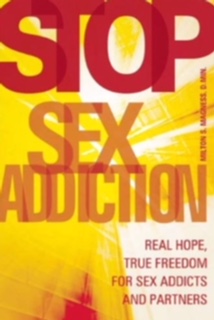
“A disclosure that is less than 100% honest is not a disclosure, but a deception!”
Milton S. Magness
If you are a spouse or partner in a couple relationship and you have experienced betrayal by your significant other, then you might consider incorporating a disclosure session as part of your treatment process.
What Does “Deep Betrayal” Look Like?
We consider “deep betrayal” to be any act committed by a partner or spouse that severs the lines of trust in the couple relationship and strongly injures the emotional attachment of the couple. Examples include, but not limited to:
Emotional Affairs | Physical Affairs | Chronic Sexual Infidelity | Financial Infidelity
What Is the Purpose of a Disclosure?
In a nutshell, a disclosure session is a process designed to aid in providing the betrayed partner/spouse peace of mind. Damaging secrets have a way of surfacing in relationships; thus, it is our belief that it is imperative that the offending party reveal these secrets in a controlled setting so that they can move forward in recovery with minimal worry that more secrets may surface in the future. Thus, if you are doubting your spouse’s honesty, then a therapeutic disclosure may be what you and your relationship needs in order to move forward. Additionally, the offending spouse may also experience a sense of relief and freedom as keeping secrets is often very burdensome which can hinder recovery.
Another purpose of this event is that it serves at ritual for transition. There are a lot of moving parts when it comes to this type of betrayal. But, one thing that most certainly has to happen for couple healing and reconciliation, is that the couple must say goodbye to the old and tattered and start transitioning toward the new and unknown. The disclosure session serves the couple by giving them a strong shove forward, leaving behind a relationship poisoned by secrecy and deception, and welcoming a new relationship built on honesty, transparency, and integrity.
CAUTION: Staggered Disclosure Is More Harmful than Helpful
What is staggered disclosure? Often times, when a traumatic, hidden secret is revealed or discovered, the betrayed spouse is often overcome with painful emotion, which generates many MANY questions. Their imaginations often take them to very dark places that can be terribly overwhelming. To end their pain and to stop their imagination, they NEED their questions answered. They NEED IT ALL TO STOP! Thus, it is common that the wounded spouse ask more and more questions over the course of time. Their intent is pure in that they simply believe that the right information will make the pain subside. Unfortunately, this attempt to “feel better” often ends up exacerbating the wound, thereby, creating even more trauma.
Staggered disclosure is when the offending partner, over time, discloses more and more details about their infidelities. Much of the time, in the initial disclosure (i.e., when they were caught or discovered), the offending partner often withholds information. Some of that information is important for couple recovery and healing, and some of it is just white noise. Regardless, the wounded partner often will eventually assume or presume that there “is more s/he is not telling me;” ergo, more questions ensue. The offending spouse, often riddled with guilt and shame, will start answering these questions without giving thought to the notion that (1) certain information really has “no therapeutic value,” thus, potentially creating a deeper wound, or (2) the information disclosed is appropriate, but since it is done at different points in time, it keeps the initial wound open and leaves the wounded spouse thinking, “I wonder what else s/he hasn’t told me that will eventually surface and bite me on the ass when I least expect it.”
If Not Staggered Disclosure, then WHAT?!
For the reasons listed above, this is why we recommend a therapeutic disclosure. This type of disclosure is NOT driven by the hurt and pain harbored by the wounded spouse, but instead, it is driven by the desire to get the proper form of medicine for this deep emotional wound.
What’s Involved in a Therapeutic Disclosure?
Therapeutic disclosures may be done differently depending on who is facilitating it. We recommend you have a CSAT (certified sex addiction therapist) conduct your disclosures. Other providers with different types of certifications may be able to conduct an adequate disclosure, but we recommend CSATs because we know CSATs are trained in this process.
So, a therapeutic disclosure often involves the following, but formatting may vary based on the provider:
- 2 therapists trained in facilitating disclosures
- both partners partaking in couple recovery
- 2-4 individual prep sessions for each partner
- 1-2 hour disclosure session with all 4 parties present
Each partner will usually spend some time with an therapist partaking in the VERY IMPORTANT prep work involved in order for the disclosure event to be beneficial. The therapists should coordinate an agreed upon day and time to have the disclosure event; thus, the prep work needs to be completed before that time arrives. In my practice, we block out 2 full hours for the actual disclosure. Some times we finish sooner, but two hours gives us plenty of time to complete the process. It’s important that you discuss this process in detail with your therapist. Since the process will look differently from therapist to therapist, make sure you understand his/her unique process and the purpose for each element. You need to be confident in the service that is being provided.
What SUCKS About a Therapeutic Disclosure?
Waiting. This is probably one of the hardest parts for the wounded spouse. Anybody experiencing the level of pain they are experiencing really wants the pain to stop NOW!! As you can see, even if you were able to get into see a therapist right away, there is still prep work that needs to be done prior to the disclosure. HOPEFUL MESSAGE: There will always be some wait time; however, if your urgency level is through the roof, you may be able to complete this process in a week or two.
Intensity. The emotional atmosphere of this event is often VERY emotional. The couple more than likely will leave tired and emotionally exhausted. As a therapist who has facilitated several therapeutic disclosures, I often leave tired and emotionally spent as well, which is why I like to schedule them at the end of the day. HOPEFUL MESSAGE: Although this part is very scary, intensity is treatment often helps give the couple momentum. In other words, I would worry about the quality of the event if the couple did NOT feel or experience a heightened level of emotional intensity.
Bitter-Sweetness. At the close of a therapeutic disclosure, the couple may feel a lot of things. Unfortunately, complete trust and peace is usually NOT one of them. Thus, the couple, more often than will not, will leave the event feeling glad it is over, but also understanding there is more work to do. HOPEFUL MESSAGE: No, a therapeutic disclosure, does not “fix” things whatsoever. Yes, there is more work to do. However, this event is often very difficult and challenging. It takes a lot of courage, commitment, and love. Our hope for couples who complete this portion of treatment leave feeling proud of themselves for the courage and strength displayed; relieved as they have taken a very important step in building a relationship with no secrets; and hopeful as they leave with a clearer picture of where they are headed in this journey.
Cost. This service often falls in the realm of “expensive.” However, most recovery-related forms of treatment are expensive for various reasons. HOPEFUL MESSAGE: We tend to invest in the things that are important to us. It is a very encouraging move when a couple (or individual) has the courage to love themselves enough to financially invest in their own health and well-being. Trust me, YOU’RE WORTH IT!
I hope the information you find here aids you in your recovery journey. If you want to know more about therapeutic disclosures or other services we offer, feel free to contact me at your convenience. Meanwhile, I wish you well in your recovery journey. Here are few book recommendations to learn more about therapeutic disclosures.
Blessings,
Joshua Nichols
Licensed Marital & Family Therapist
Certified Sex Addiction Therapist




